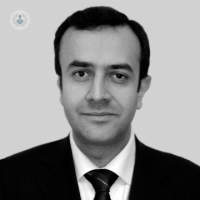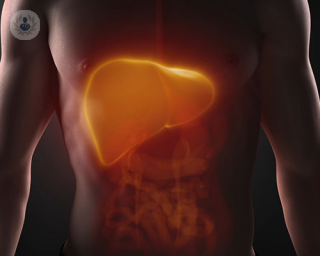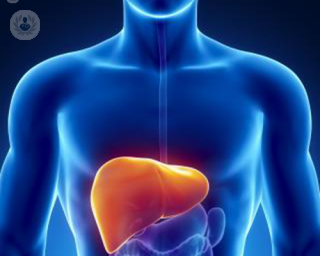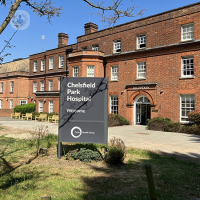Liver
Professor Raj Mookerjee - Gastroenterology
Created on: 11-10-2017
Updated on: 05-02-2023
Edited by: Conor Lynch
What is the liver?
The liver is one of the vital organs, which sits on the right side of the abdomen. The liver is the largest internal organ in the body. It is also a gland, which means it synthesises substances to then release them into the bloodstream.

What does the liver do?
The liver performs over 500 different functions. Its main function is to filter the blood which comes through to it from the digestive tract, then pass it around the rest of the body, filtering toxins and making chemicals safe or metabolising them.
The liver plays an important part in nutrition, metabolism, hormone production, and blood functions. It is an essential organ in the body, and if a significant amount of liver tissue is damaged, it can cause problems such as liver disease.
Which conditions can affect the liver?
Conditions that affect the liver can be inherited, because of an autoimmune disease, or as a result of damage. Some examples of liver conditions can include:
- Hepatitis is the inflammation of the liver and can be both viral and non-viral.
- Fatty liver disease, which can be caused by overconsumption of alcohol, or non-alcoholic fatty liver disease, caused by the build-up of fat in the liver in someone who is overweight or obese.
- Long-term damage as a result of any other condition can cause scarring on the liver, otherwise known as cirrhosis.
- Liver cancer occurs when the cells in the liver begin to grow abnormally. Commonly, liver cancer happens in patients who already have cirrhosis.
- Liver failure is when the liver fails to function as it should. There are different stages of liver failure, known as chronic and acute. Chronic liver failure occurs over months or years, whereas acute liver failure comes on suddenly and rapidly.
What are signs that your liver is not functioning properly?
Most people who have liver problems don’t experience any symptoms. Different symptoms can appear, such as:
- jaundice, when the skin looks yellow in colour
- pain in the abdomen where the liver is located
- bruising easily
- swelling in the abdomen
- nausea or vomiting
- sleepiness
- perhaps slurred speech
- general fatigue or feeling unwell
Where do you feel liver pain?
Interestingly, the liver doesn’t have any pain receptors. Pain from the liver is usually felt in surrounding tissues that have become damaged or inflamed. At this stage, the liver is severely damaged. The pain can either be dull and throbbing, or sharp and stabbing.
How are liver problems diagnosed?
Depending on the condition, different symptoms present, and a liver function test may be necessary to determine the cause. There are many more conditions that affect the liver, which can be diagnosed by a GP or healthcare provider. Blood tests will be carried out, to see if the liver is functioning correctly. Imaging tests used to diagnose liver problems include ultrasound scans, CT scans, and liver and spleen scans. Following these tests, a liver biopsy may be performed.
What can be mistaken for liver pain?
Liver pain is often mistaken for right shoulder pain or back pain. Common signs of liver issues are also associated with gastrointestinal problems.

What specialist treats liver problems?
Depending on the condition and if necessary, the liver can be treated by a specialist, such as a gastroenterologist or a hepatologist, a doctor specialising in the liver and its related functions.
Why would you need liver surgery?
Surgery to remove the liver is called hepatectomy and all or part of the liver can be taken out. The main reason the liver may be removed is if there are tumours on it; cancerous, precancerous, or benign. If only part of the liver can be removed, there is a high chance it will make up for the tissue that’s been lost. If the whole liver needs to be removed, a liver transplant would be required.
Can you live without a liver?
You cannot live without your liver. If only some of the liver has been damaged, it can repair and, in some cases, even regenerate itself. There is a point where damage becomes irreversible. A liver transplant may be required if the liver doesn’t function correctly. A whole or part of a liver can be taken from a donor to replace the damaged tissue.
What can damage the liver?
Liver damage can be caused by:
- alcohol abuse
- unhealthy diet
- obesity
- diabetes type 2
- dirty needles, used for drugs, tattoos or piercings
- exposure to others’ bodily fluids
- exposure to certain chemicals or toxins
- certain medications, both prescription and over-the-counter
- some herbal compounds
How can you prevent liver problems from occurring?
To prevent damage to the liver:
- drink in moderation
- avoid illegal drugs
- get vaccinated
- take medication responsibly
- maintain a healthy weight
- have a healthy diet
- practice safe sex












